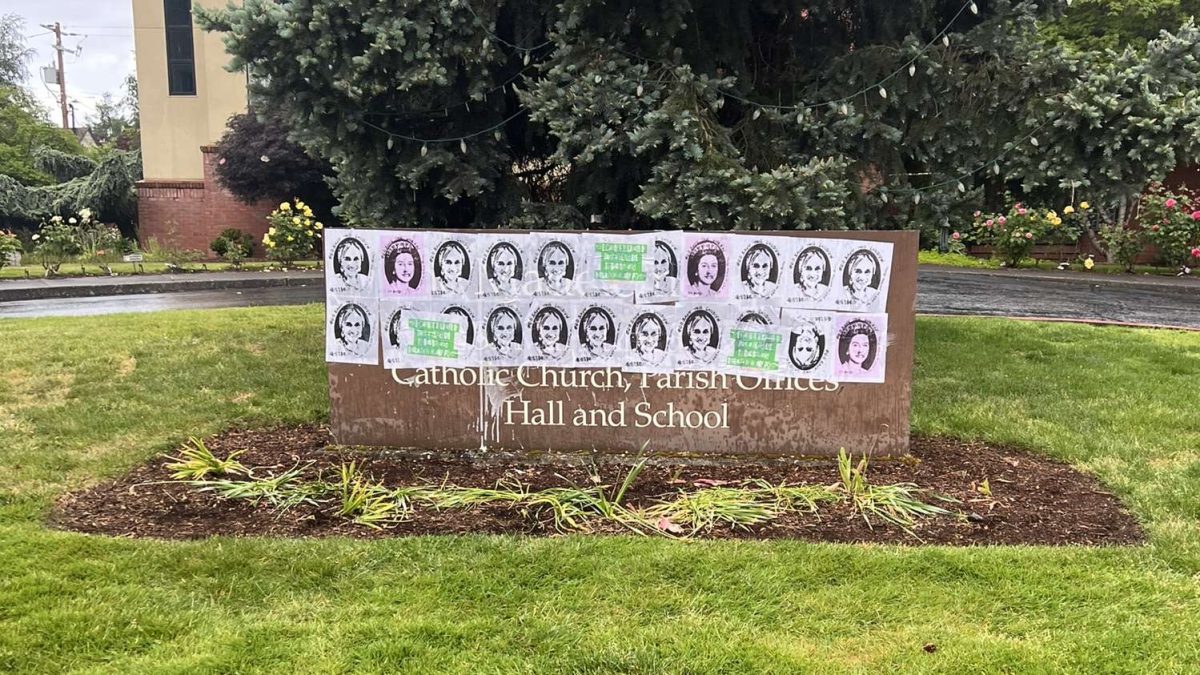Grant High School’s graduating class of 2025 has been hit with a new policy this year: Only eleven cords are approved to earn and wear at the graduation ceremony, and disciplinary measures will be taken if the rule is broken. Grant Principal James McGee has significantly cut down the list of cords, excluding some from the previously approved list, with the intention of raising the academic standards for students and eradicating the exclusionary behaviors that accompany the competition of earning graduation cords.
The programs allowed to reward students with graduation cords this year include the following: Advancement via Individual Determination (AVID); Career & Technical Education, three years completed in one course of study; Portland Community College Dual Credit, nine or more PCC Dual Credits with passing grade; Portland State University Challenge, eight credits of PSU Challenge, C- or higher; Japanese Immersion Program, four years completed in the program; National Honor Society, one or more completed years; Biliteracy, Advanced Level Proficiency in a world language or a score of 4 or higher on an AP language test; participation in the Asian Pacific Islander Alliance, Black Student Union, Indigenous Peoples Student Union, Jewish Student Union, Movimiento Estudiantil Chicanx de Aztlán (MEChA) or the Queer Straight Alliance.
Before this year, students could earn cords for multiple years of participation in choir, band, theater, dance and other electives such as Yearbook, Grant Magazine and Student Leadership. A cord could also be earned for completing eight combined credits of math and science, which is more than the current requirement for graduation. The new policy excludes any cords that aren’t related to a specific academic program or an affinity group, meaning that students who have participated in these previously acknowledged activities throughout the last four years will no longer be able to receive a cord for their achievement.

According to McGee, the cords being kept are used district-wide to recognize excellence in academics and community involvement. McGee’s decision was made intentionally to exclude cords which elective teachers award to students or are purchased by students themselves to honor clubs they have been a part of. “We just started adding cords to the point that students were adding cords, and we didn’t know,” says McGee.
He considers the lack of standardization or specific expectations to accompany the cords an issue, and believes cords should be reserved for major achievements. “We’re looking at exceptional accomplishments,” says McGee. “Quite frankly, when we talk about four years of math, in most states … you need to complete four years of math in order to graduate. It’s not an exceptional accomplishment.” McGee sees a future in which expectations are raised for students across the board — weeding out graduation cords is a starting point to begin implementing those changes. “I want to get us to a place where the expectation is you’re taking four years of math and science,” says McGee.
In response to student frustration, McGee highlights the celebrations that take place to honor senior accomplishments throughout the year. For McGee, handing out cords to wear at graduation is not a proper way to honor participation in the performing arts. “There’s other ways to honor those accomplishments,” says McGee, specifically noting the performances of band, choir and dance in recent weeks.
The accomplishments of performing artists in the class of 2025 have not gone under McGee’s radar. “This senior class, I mean, the sky’s the limit for so many of them,” he says. “So should they have cords? … I have to think about the school and the culture of the school, and not a specific student. And that’s tough for me.” By removing many of the specialized cords graduates can receive, McGee hopes to create a holistic school climate.
The second factor contributing to this decision was the need to address the tension staff observed between students when cords were awarded at the end of the year. “Parents don’t see what we’re seeing … but we see the microaggressions and the macroaggressions,” says McGee. “We see the belittling that happens.” McGee and other Grant staff have observed the inflated value of each cord paired with the competitive nature of students to receive as many cords as possible. By restricting which graduation cords students can earn, he hopes to encourage a more equitable environment where all students are striving to reach the same goals.
If a student attends graduation with cords that have not been approved by the school, it will be recorded on their final transcript — which is sent to the college the student plans on attending — as a disciplinary infraction. “Kids are expected to follow the rules while they’re at Grant High School through graduation. If a student (breaks the rule), then there’s going to be problems,” says McGee.
McGee’s decision is final for this year, and he does not intend to reopen the conversation about graduation cords in the future. However, if students come forward in the coming years to propose cords which they believe represent exceptional academic achievements, the door isn’t completely closed. “I’m always open to kids,” says McGee. “I’m absolutely open to it, (but) that being said, I want to pull back on the cords. It’ll be hard to convince me otherwise again.”



































